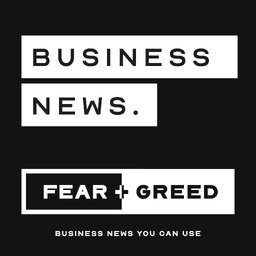The Week Ahead | 16 Sep 2024
This is Fear and Greed - The Week Ahead, where Sean Aylmer and Stephen Koukoulas discuss the major events, reports and releases that provide insight into the economy this week (with a look back at the events of last week too).
In 1 playlist(s)
FEAR & GREED | Business News
Daily business news for people who make their own decisions, with business journalist Sean Aylmer an…Social links
Follow podcast
Recent clips

Afternoon Report | ASX dips on Trump fears
05:20

Hate speech laws pass; superannuation delivers strong results; Nike backs pickleball
16:58

Q+A: How to unlock Australia's 'abundant growth opportunities'
12:21
 FEAR & GREED | Business News
FEAR & GREED | Business News